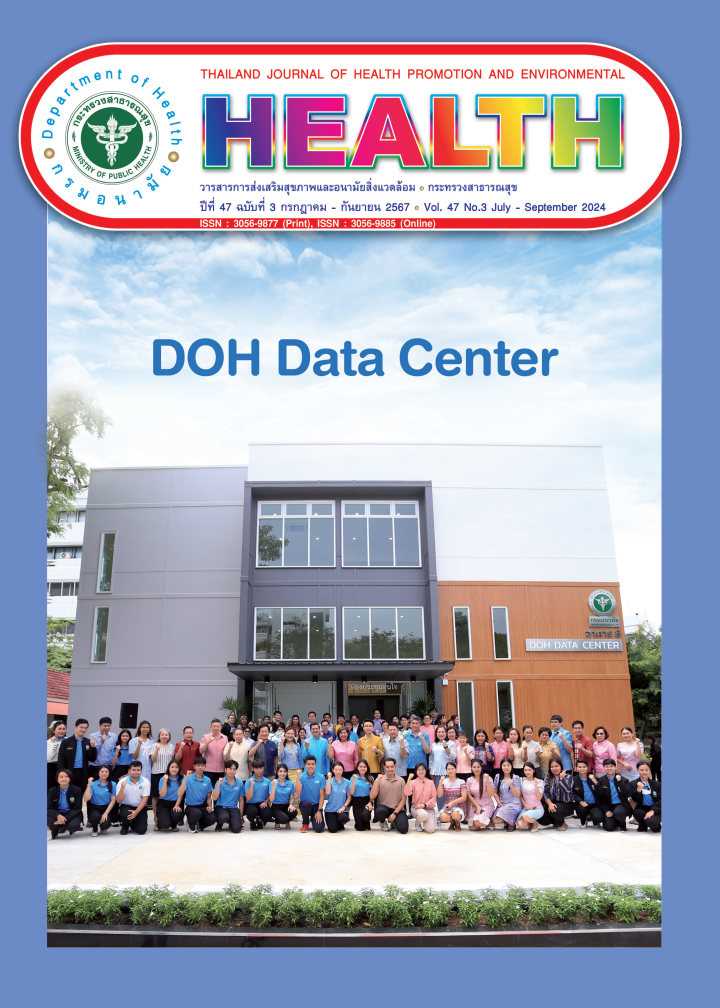The Application of Lifestyle Medicine in the Management and Prevention of Hypertension
Keywords:
Hypertension, Lifestyle Medicine, Lifestyle Modification, Prevention and ControlAbstract
Hypertension is a condition where blood pressure in the arteries remains consistently higher than normal. It often presents no symptoms in the early stages but has long-term health impacts. Additionally, it has economic implications both globally and nationally. Treatment for hypertension typically involves antihypertensive medication and lifestyle modification. However, treatment approaches largely focus on medication, which can have side effects such as fatigue and dizziness, as well as high costs. Recent findings indicate that lifestyle modification can significantly reduce blood pressure and lower mortality rates from stroke and heart disease by up to 30%. This study aims to explore lifestyle factors contributing to risk behaviors leading to hypertension and to review and provide evidence-based insights into the application of lifestyle medicine principles for controlling and preventing hypertension. This research utilizes a systematic literature review approach to collect, analyze, and synthesize relevant information from credible academic sources, both international and national, such as PubMed, ScienceDirect, Scopus, and ThaiJO. This study found that lifestyle factors contributing to risk behaviors leading to hypertension include a diet high in salt, sugar, fat, and low in fiber, lack of regular exercise, chronic stress, insufficient sleep, smoking, high-risk alcohol consumption, and lack of positive social connection. Lifestyle Medicine, a field of Medicine that employs evidence-based practices to manage and prevent non-communicable diseases (NCDs), including hypertension, has proven effective. Evidence supports that applying lifestyle medicine principles to promote sustainable behavioral changes can effectively control and prevent hypertension. Such interventions include followings: having the DASH diet, engaging in aerobic exercise, managing stress through practices like meditation, improving sleep habits, avoiding smoking and high-risk alcohol consumption, and fostering supportive social networks. These measures help reduce stress levels and lower hypertension risks while enhancing quality of life. Thus, lifestyle medicine represents a novel approach to healthcare services aimed at effectively controlling and preventing NCDs, particularly hypertension. Integrating it into primary healthcare services can increase accessible and equitable care for patients, leading to a reduction in premature mortality and alleviating the economic burden from unnecessary healthcare costs in Thailand
Downloads
Published
Issue
Section
License
Copyright (c) 2024 Thailand journal of Health Promotion and Environmental Health

This work is licensed under a Creative Commons Attribution-NonCommercial-NoDerivatives 4.0 International License.

